WITNESS RADIO MILESTONES
3 million slip into poverty as Covid-19 strikes economy
Published
5 years agoon
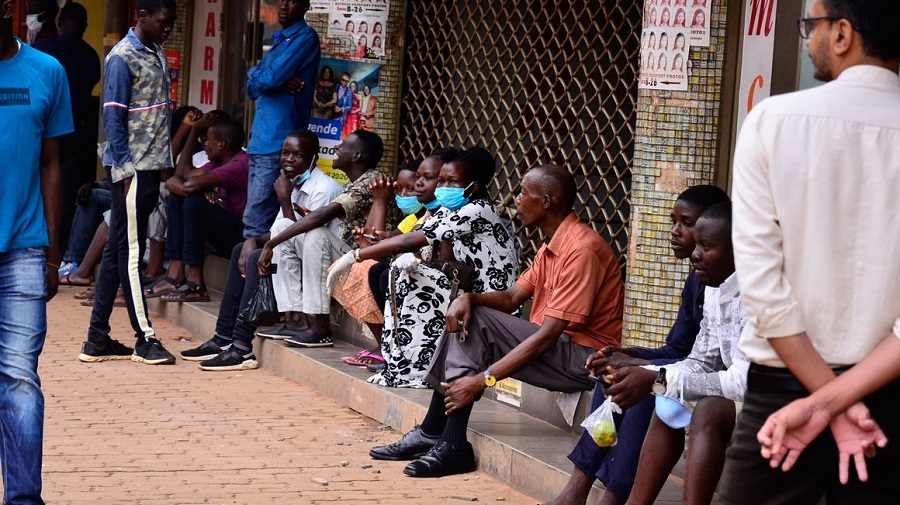
Traders sit outside shopping arcades that were closed to mitigate the spread of coronavirus in March. The Covid-19 disruption on economy is pushing 3.1 million Ugandans into poverty. PHOTO BY ABUBAKER LUBOWA
The Covid-19 disruption on the economy is pushing 3.1 million Ugandans into poverty, the United Nations has warned in a report on socio-economic impact of the pandemic in Uganda.
The “Socio-economic impact of Covid-19 in Uganda” which was released yesterday in Kampala during a high-level discussion on implementation of sustainable development goals, shows that the lockdown and containment measures made 1.9 million non-poor to become insecure and another 1.9 million insecure individuals become poor.
“The increase in poverty among wage earners could be felt most in eastern and northern regions, due to many households already highly vulnerable to poverty in this regions,” the report reads in part.
The latest report on poverty comes just days after Civil Society Budget Advocacy Group (CSBAG) and Advocates Coalition for Development and Environment (ACODE) in partnership with the Ministry of Finance, Planning and Economic Development, Ministry of Health, Ministry of Education and Sports, and Ministry of Local Government held a high-level policy dialogue on reopening uganda’s economy this week and asked authorities to focus on the wellbeing of the economy.
According to the report, poverty rate in eastern region is projected to shoot from 28.8 per cent to 53.3 per cent, northern region will shift from 30.3 per cent to 44.8 per cent, western region will experience a rise from 13.2 per cent to 31.7 per cent and central region will experience a rise from 8.9 per cent to 18.8 per cent, according to the report.
“If the pandemic is not contained in the short term and the social distancing measures remains in place, the increase in unemployment is expected to increase the poverty rate among wage earners from 17 per cent to 32.7 per cent,” the report stated.
The UN recommended: “Cautious borrowing could cushion the economy and improve industry, innovation, and infrastructure, reduce inequality and improve the outlook for zero hunger.”
The resident coordinator of the UN, Ms Rosa Malango, asked government to address the problem of corruption and poor implementation of projects that has left the population in poverty.
Ms Malango said the UN is now engaging private sector players to increase the impact of its poverty eradication programme at grass roots.
“The Covid-19 pandemic has shown us why we must not relax; there will be no post-Covid-19 time. We need to engage our partners on the discussion around corruption and integrity to put the interest of people at grassroots and other vulnerable population at the centre stage,” she said during the conference.
“We are not doing business as usual. We are having engagements with private sector in order to reach the 68 per cent of Ugandans who are in informal economy into formal economy. The UN has in recent time launched a series of partnerships with JUMIA, ABSA bank Safe Boda. We are also partnering with Stanbic bank to teach savings groups in village financial literacy,” she said.
Ms Malango said they have also partnered with government in the Shs715 billion agro-industrialisation for local development initiative in the Rwenzori Sub-region to address the problem of poverty.
On addressing the poverty and unemployment among youth, the UN Uganda boss said they have also launched a ‘one million sustainable development goal solutions’ from youth in Uganda innovation challenge to support youth startups that are impacting communities and creating jobs. She said more than 500 young people have so far expressed interest.
“During the past five years of the implementation of the UN Development Assistance Framework (UNDAF) from 2016-2020, the UN in Uganda has contributed to several achievements, including in the area of governance with strengthening the electoral processes and human capital development,” she said.
Through the interventions by UN, learning literacy and numeracy increased at primary (P.6) from 38 per cent to 52 per cent, among other achievements, according to Malango.
“The subsequent cooperation framework with government of Uganda and other development partners will focus on empowering youths and skills development, gender equality climate change mitigation among others,” she said.
Human capital development
Dr Arthur Bainomugisha, the executive director of ACODE, said it is important for government to ensure the education sector that is central in human capital development has proper management.
“A lot of money has been borrowed in the name of Covid-19 and we want to know how much it is and how it was used. We must never allow entrepreneurs of Covid-19 to thrive while other people are thrown by the pandemic into poverty,” he said.
However, Mr Julius Mukunda, the executive director of CSBAG, said it is important the government focuses investment on real economy such as agriculture that the largest number of the population depend on.
Ms Mary Karooro Okurut, the minister in Charge of General Duties at the Office of the Prime Minister, said government is committed to ensuring equitable development for all Ugandans.
She said government has integrated the sustainable development goals (SDGs) in the third National Development Plan. The SDGs focus on inclusive development.
**Daily Monitor
Related posts:

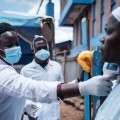 AU warns cost of COVID-19 pandemic could be long-lasting in Africa
AU warns cost of COVID-19 pandemic could be long-lasting in Africa
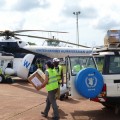 More people to go hungry as the COVID-19 pandemic hits harder
More people to go hungry as the COVID-19 pandemic hits harder
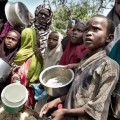 More people to go hungry as the COVID-19 pandemic hits harder
More people to go hungry as the COVID-19 pandemic hits harder
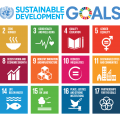 UGANDA LAGS BEHIND ON SDGS: Majority citizens are still languishing in poverty
UGANDA LAGS BEHIND ON SDGS: Majority citizens are still languishing in poverty
You may like
-
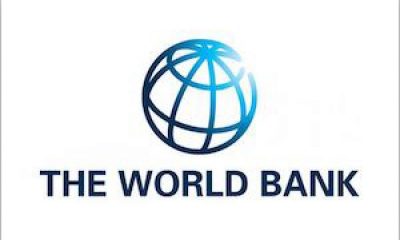

30 civil society organizations have written to the World Bank Group demanding to publicly disclose the Africa Energy Approach paper.
-
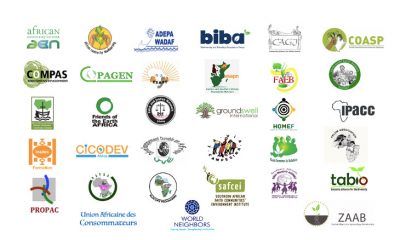

African Civil Society Refuses To Engage With UNFSS Without Radical Change
-


Court releases a tortured community land rights defender on bail
-


Close to 120 land rights defenders, lawyers, and PAPs leaders have been arbitrarily arrested during the COVID-19 lockdown…
-


EU to support COVID-19 vaccination strategies in Africa
-
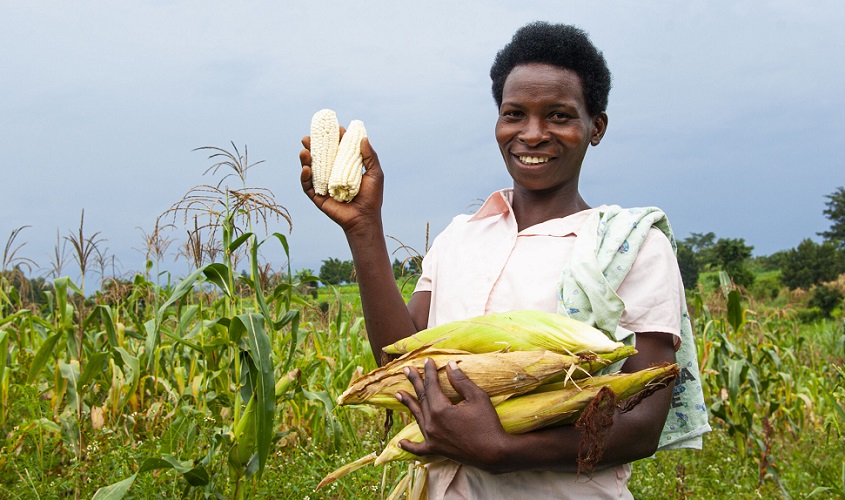

Agriculture rebounds as economy recovers
WITNESS RADIO MILESTONES
Top 10 agribusiness giants: corporate concentration in food & farming in 2025
Published
3 weeks agoon
June 19, 2025
Today a handful of agribusiness corporations have consolidated unprecedented control over the world’s food supply, with devastating consequences for farmers, consumers and the planet. A new report by ETC Group and GRAIN examines the state of corporate concentration in six sectors critical to agriculture: commercial seeds, pesticides, synthetic fertilisers, farm machinery, animal pharmaceuticals and livestock genetics.
Corporate consolidation is increasing in most of these sectors and four of them– seeds, pesticides, agricultural machinery and animal pharmaceuticals– now meet the definition of an oligopoly, in which four companies control more than 40% of a market. Concentration can be even higher at the national level, as is the case with synthetic fertilisers.
Top findings from the report include:
- Oligopolies dominate key sectors: Bayer, Corteva, Syngenta, and BASF control 56% of the global commercial seeds market, and 61% of the pesticides market.
- Profiteering amid global crises: Agribusiness giants have exploited crises like the Ukraine war and the COVID-19 pandemic to inflate prices. Fertiliser companies, for instance, saw revenues soar by 57% from 2020 to 2023, with some accused of price gouging.
- Digital and biotech expansion: Corporations are rapidly integrating AI, gene editing, and digital platforms into agriculture through partnerships with Big Tech companies. These technologies enable data extraction from farmers, facilitate carbon credit schemes, and tighter control over food systems—while raising concerns about biosafety, privacy, and corporate monopolies.
Source: grassrootsonline
Related posts:

 A corporate cartel fertilises food inflation
A corporate cartel fertilises food inflation
 Food inflation: The math doesn’t add up without factoring in corporate power
Food inflation: The math doesn’t add up without factoring in corporate power
 African governments are giving in to corporate pressure and undermining local seed systems – report
African governments are giving in to corporate pressure and undermining local seed systems – report
 The United Nations Food Systems Summit is a corporate food summit —not a “people’s” food summit
The United Nations Food Systems Summit is a corporate food summit —not a “people’s” food summit
WITNESS RADIO MILESTONES
Land grabbers evict 360,000 Ugandans in 2024
Published
8 months agoon
November 20, 2024
A staggering 363,021 Ugandans were displaced due to forced land evictions between January and June 2024, according to a new report by Witness Radio Uganda.
The report documented 90 cases of land evictions during this period, with nearly four incidents occurring weekly, affecting over 15,126 people and threatening 5,060 hectares of land nationwide.
The Central region was the epicenter, recording 52 eviction cases, followed by 24 in the Western region, eight in the Northern region, and six in the Eastern region. Alarmingly, the report estimated that 2,160 Ugandans face eviction daily, with 723 hectares of land at risk of being grabbed every day.
VIOLENCE AND HUMAN RIGHTS VIOLATIONS
Despite government promises and directives from President Museveni to halt evictions, land grabbers have routinely ignored these orders, often resorting to violence. Armed security forces, private militias, and police were reported to have carried out the majority of the evictions.
Of the reported cases, 37 were enforced by armed gangs on behalf of evictors, 25 involved Uganda Police, five were carried out with the participation of UPDF soldiers, and four were linked to private security companies.
“The egregious levels of impunity exhibited by land grabbers have left communities defenseless, creating an environment where their human rights are trampled without consequence,” said Jeff Wokulira Ssebaggala, country director of Witness Radio Uganda.
He called for accountability and justice, warning that the unchecked power of influential individuals and entities leaves marginalized communities vulnerable and without recourse.
DRIVERS OF EVICTIONS: INDUSTRIALIZATION AND LAND-BASED INVESTMENTS
The report identified the government’s push for industrialization and land-based investments as the primary drivers of forced evictions. Land is increasingly targeted for oil and gas extraction, mining, agribusiness and tree plantations for carbon offsets. While some of this land is already under development, other parcels remain vacant but are guarded by military personnel and private security firms.
Ssebaggala emphasized that industrialization must balance economic development with the protection of smallholder farmers’ rights to land and food security.

TRAGIC STORIES
The report highlighted harrowing cases that underscore the human toll of forced evictions. In Nakasongola, smallholder farmer Dan Ssebyala was ambushed and killed by armed men following a confrontation over disputed land. The district has become a hotspot for violent evictions involving absentee landlords and powerful investors.
Ismael Bwowe, a disabled father of 20, recounted how his land was confiscated after he demanded fair compensation. He faced intimidation, arrests and false charges from state authorities, including being accused of robbing an influential individual. Bwowe claimed that Total Energies offered legal support and representation on the condition that he accept their compensation terms.
“I refused,” he said, adding that the pressure to relinquish his land remains intense. The report underscores the urgent need for reforms to address forced evictions, ensure accountability, and protect the rights of vulnerable communities. Without meaningful intervention, Uganda risks deepening inequality and undermining the livelihoods of smallholder farmers who are essential to the country’s food security.
FAMILY JAILED AMID LAND DISPUTE
The plight of Richard Ssebagala, his wife Prossy Namande, and their relative Anania Ngabirano, residents of Kabubu-Kabongo village in Nansana Municipality, Wakiso district, highlights the human toll of Uganda’s ongoing land disputes. The family spent nine months in prison following their arrest on January 10, 2024, under controversial circumstances.
ARREST AND ALLEGATIONS
The arrests occurred at 1am, during a raid by officers from Luweero police station. Police reportedly banged on the doors and forcefully detained the family, accusing them of aggravated robbery. However, the family believes the arrest was a tactic linked to a land dispute with Benon Ntambi, a man who allegedly grabbed their land.
Before the arrests, Ntambi had reportedly destroyed crops, including tomatoes, potatoes, and bananas, on the contested land. While the family was incarcerated, a new building was constructed on their land, which is now occupied, raising further questions about the motivations behind their detention.
CALLS FOR JUSTICE
The case has drawn attention from Witness Radio Uganda, which has urged the government to take immediate action to address land grabbing and illegal evictions. The organization emphasized the need to strengthen land laws and protect vulnerable communities from abuses.
It also called for greater accountability in institutions such as the Uganda Police Force, the army and land registries, which are often accused of corruption and favoritism toward the wealthy.
“The government must prioritize justice for victims of illegal evictions and address systemic corruption that leaves the poor defenseless against land grabbers,” Witness Radio Uganda stated.
BROADER CONTEXT
This case underscores the broader issue of land conflicts in Uganda, where vulnerable families are often caught in disputes with powerful individuals or entities. Advocacy groups warn that the failure to address these issues not only erodes public trust but also perpetuates inequality and injustice.
As the government faces mounting pressure to act, the story of Ssebagala and his family serves as a stark reminder of the urgent need for reforms to protect land rights and ensure justice for those impacted by land disputes.
Source: The Observer
Related posts:

 Local land grabbers evict villagers at night; foreign investors cultivate the same lands the next day
Local land grabbers evict villagers at night; foreign investors cultivate the same lands the next day
 Uganda: Land-grab victim communities will join counterparts in commemorating the 2024 International Day of Struggle Against Industrial Plantations.
Uganda: Land-grab victim communities will join counterparts in commemorating the 2024 International Day of Struggle Against Industrial Plantations.
 Mubende Land Grab: Witnessradio.org presents another petition to Land Inquiry Commission, Wants All Titles being used to evict Natives to be Investigated
Mubende Land Grab: Witnessradio.org presents another petition to Land Inquiry Commission, Wants All Titles being used to evict Natives to be Investigated
 A Nullity? Ugandans Query Constitutional Land Amendment Bill
A Nullity? Ugandans Query Constitutional Land Amendment Bill
WITNESS RADIO MILESTONES
Uganda: Community members violently evicted by security forces, allegedly related to EACOP; incl. co. responses
Published
8 months agoon
November 18, 2024
On 10 February 2023, more than 2,500 community members were forcibly evicted from their land in Kapapi village in Hoima district in Western Uganda by security forces, receiving no compensation or resettlement.
Witness Radio, an Ugandan non-profit organisation comprised of human rights investigative journalists, lawyers, and social workers, said that many people were wounded during the eviction, women were raped, and houses were destroyed.
Witness Radio said its investigations found that this eviction occurred to clear the path for the Tilenga feeder pipeline, part of the East African Crude Oil Pipeline (EACOP). According to Witness Radio, in 2022 Kapapi community members’ land was surveyed for the Tilenga pipeline and people were informed they would be compensated for the land. Instead, they were forcibly evicted, which Witness Radio allege was backed and financed by Swacoff Intertrade Company Limited, known to TotalEnergies. They also allege that guards from private security company Magnum Security were involved. Witness Radio has also found that dozens of local farmers who were evicted have been arbitrarily arrested and face criminal charges.
The Business & Human Rights Resource Centre invited TotalEnergies, Swacoff Intertrade Company Limited, and Magnum Security to respond to the allegations. TotalEnergies responded and stated that no land eviction activities had been carried out by or on behalf of TotalEnergies EP Uganda (TEPU) and EACOP Ltd and that none of the affected people are Tilenga or EACOP Project Affected Persons. Swacoff responded and said that the company has never engaged in forceful eviction of any sort and asserts that these allegations are completely false. Their full responses and rejoinders from Witness Radio are available below. Magnum Security did not respond.
Related posts:

 Uganda: NGO claims Agilis Partners & Great Seasons violently evicted locals to pave the way for agribusiness; Agilis Partners responds
Uganda: NGO claims Agilis Partners & Great Seasons violently evicted locals to pave the way for agribusiness; Agilis Partners responds
 A son of the community defender is shot dead, another critically injured in a retaliatory attack by security guards evicting locals off their land to give way to large-scale sugarcane growing.
A son of the community defender is shot dead, another critically injured in a retaliatory attack by security guards evicting locals off their land to give way to large-scale sugarcane growing.
 Breaking: Criminal trial for seven community defenders opposed to EACOP/Tilenga project forced land eviction has been fixed.
Breaking: Criminal trial for seven community defenders opposed to EACOP/Tilenga project forced land eviction has been fixed.
 Uganda: CSOs claim Agilis Partners forcibly evicting local communities to pave way for agribusiness; company did not respond
Uganda: CSOs claim Agilis Partners forcibly evicting local communities to pave way for agribusiness; company did not respond

Activism on Trial: Despite the increasing repressive measures, Uganda’s EACOP protesters are achieving unexpected victories in the country’s justice systems.

Communities Under Siege: New Report Reveals World Bank Failures in Safeguard Compliance and Human Rights Oversight in Tanzania

A decade of displacement: How Uganda’s Oil refinery victims are dying before realizing justice as EACOP secures financial backing to further significant environmental harm.

Carbon Markets Are Not the Solution: The Failed Relaunch of Emission Trading and the Clean Development Mechanism

A decade of displacement: How Uganda’s Oil refinery victims are dying before realizing justice as EACOP secures financial backing to further significant environmental harm.

Govt launches Central Account for Busuulu to protect tenants from evictions

Activism on Trial: Despite the increasing repressive measures, Uganda’s EACOP protesters are achieving unexpected victories in the country’s justice systems.

Despite harsh repression, opposition to the EACOP pipeline in Uganda remains strong

Innovative Finance from Canada projects positive impact on local communities.
Over 5000 Indigenous Communities evicted in Kiryandongo District
Petition To Land Inquiry Commission Over Human Rights In Kiryandongo District
Invisible victims of Uganda Land Grabs
Resource Center
- LAND GRABS AT GUNPOINT REPORT IN KIRYANDONGO DISTRICT
- RESEARCH BRIEF -TOURISM POTENTIAL OF GREATER MASAKA -MARCH 2025
- The Mouila Declaration of the Informal Alliance against the Expansion of Industrial Monocultures
- FORCED LAND EVICTIONS IN UGANDA TRENDS RIGHTS OF DEFENDERS IMPACT AND CALL FOR ACTION
- 12 KEY DEMANDS FROM CSOS TO WORLD LEADERS AT THE OPENING OF COP16 IN SAUDI ARABIA
- PRESENDIANTIAL DIRECTIVE BANNING ALL LAND EVICTIONS IN UGANDA
- FROM LAND GRABBERS TO CARBON COWBOYS A NEW SCRAMBLE FOR COMMUNITY LANDS TAKES OFF
- African Faith Leaders Demand Reparations From The Gates Foundation.
Legal Framework
READ BY CATEGORY
Newsletter
Trending
-

 SPECIAL REPORTS AND PROJECTS4 days ago
SPECIAL REPORTS AND PROJECTS4 days agoActivism on Trial: Despite the increasing repressive measures, Uganda’s EACOP protesters are achieving unexpected victories in the country’s justice systems.
-

 NGO WORK1 week ago
NGO WORK1 week agoCommunities Under Siege: New Report Reveals World Bank Failures in Safeguard Compliance and Human Rights Oversight in Tanzania
